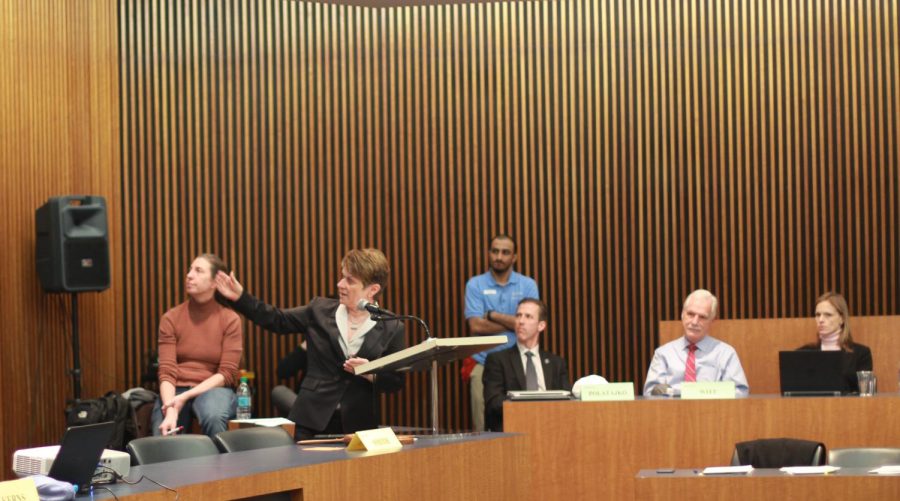Kent State colleges anticipate revenue declines in the upcoming year
President Beverly Warren presents a slideshow on the university’s 10-year, $1.2 billion Master Plan to members of Faculty Senate at a meeting Monday, April 9, 2018.
May 8, 2018
Deans and departments across Kent State are being asked to create plans that outline five percent budget cuts for their college.
With a projected decline in enrollment, officials at Kent State are trying to keep their budgets balanced for the upcoming year.
Public universities rely mostly on tuition and state funding for revenue. Ohio provides funding based largely on the retention of students and whether or not they completed their courses.
The Ohio high school population is projected to decline due to less people having children during the recession. According to the Western Institute of Higher Education, there are fewer white students in the Midwest.
With fewer students entering college and, therefore, fewer students graduating, schools receive lower amounts of money from the state and from students. Lowering enrollment of international students has impacted the budget as well.
Warren said more than 70 percent of Kent State’s expenses come from personnel, which she expects the colleges will look at in their budgets.
“That’s not anticipating any layoffs,” she said. “That would be dramatic and last resort and we’re not there. It would be on how might we delay hiring, how might we look at our faculty hires?”
Last year, Kent State implemented a university separation plan in which 96 faculty members could opt to take early retirement. Hiring to replace those employees was originally projected at 20 to 25 hires per year, but will now be reduced to 10 to 12.
“It will definitely slow down,” Warren said. “What I want to emphasize is that it won’t stop. So, just as we don’t expect layoffs, we also aren’t expecting a hiring freeze.”
The university’s annual budget considerations will not affect the Master Plan, which was passed by the Board of Trustees in March and is estimated to cost around $1 billion. In Phase 1, there will be an addition to Rockwell Hall and a new College of Business Administration building. It will be funded through separate, private partnerships, state capital budgets and money from investments.
“Phase 1 of the Master Plan can proceed because it’s a totally different budget,” Warren said.
Warren said she believes the university will face challenges with revenue for the next three to five years. The university must prepare a balanced budget to be approved at the Board of Trustees in June.
Laina Yost is an administration reporter. Contact her at [email protected]












